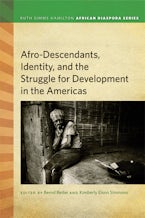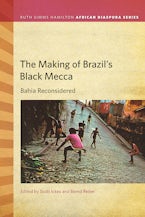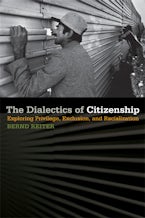Indigenous people and African descendants in Latin America and the Caribbean have long been affected by a social hierarchy established by elites, through which some groups were racialized and others were normalized. Far from being “racial paradises” populated by an amalgamated “cosmic race” of mulattos and mestizos, Latin America and the Caribbean have long been sites of shifting exploitative strategies and ideologies, ranging from scientific racism and eugenics to the more sophisticated official denial of racism and ethnic difference. This book, among the first to focus on African descendants in the region, brings together diverse reflections from scholars, activists, and funding agency representatives working to end racism and promote human rights in the Americas. By focusing on the ways racism inhibits agency among African descendants and the ways African-descendant groups position themselves in order to overcome obstacles, this interdisciplinary book provides a multi-faceted analysis of one of the gravest contemporary problems in the Americas.
ContentsPrologue - Bernd ReiterIntroduction - Bernd ReiterPart 1: The Black Atlantic ReexaminedBuilding Black Diaspora Networks and Meshworks for Knowledge, Justice, Peace, and Human Rights - Faye V. HarrisonPan-Afro-Latin African Americanism Revisited: Legacies and Lessons for Transnational Alliances in the New Millennium - Darién J. Davis, Tianna S. Paschel, and Judith A. MorrisonPart 2: Double-Consciousness and Black Identity - GlobalizedHaitians in the Dominican Republic: Race, Politics, and Neoliberalism - Lauren DerbyNavigating the Racial Terrain: Blackness and Mixedness in the United States and the Dominican Republic - Kimberly Eison SimmonsNegotiating Blackness within the Multicultural State in Latin America: Creole Politics and Identity in Nicaragua - Juliet HookerEthnic Identity and Political Mobilization: The Afro-Colombian Case - Leonardo Reales JiménezThe Grammar of Color Identity in Brazil - Seth RacusenPart 3: Racism in “Raceless ”Societies and the State: The Difficulties of Addressing What Ought Not ExistAfro-Colombian Welfare: An Application of Amartya Sen’s Capability Approach Using Multiple Indicators Multiple Causes Modeling (MIMIC) - Paula A. LezamaRacism in a Racialized Democracy and Support for Affirmative Action Policy in Salvador and São Paulo, Brazil - Gladys Mitchell-WalthourAfro-Descendant Peoples and Public Policies: The Network of Afro-Latin American and Afro-Caribbean Women - Altagracia Balcácer Molina and Dorotea WilsonPart 4: Migration, Diasporas,and the Importance of Local KnowledgeDecolonizing the Imaging of African-Derived Religions - Amanda D. Concha-HolmesNeoliberal Dilemmas: Diaspora, Displacement, and Development in Buenos Aires - Judith M. AndersonPluralizing Race - Mamyrah A. Dougé-ProsperConclusion - Bernd ReiterContributors
Bernd Reiter is Associate Professor of Comparative Politics at the University of South Florida and has worked as a social worker and NGO consultant in Colombia and Brazil.
Kimberly Eison Simmons is Associate Professor of Anthropology and African American Studies, Director of the Latin American Studies Program at the University of South Carolina, and past president of the Association of Black Anthropologists.




